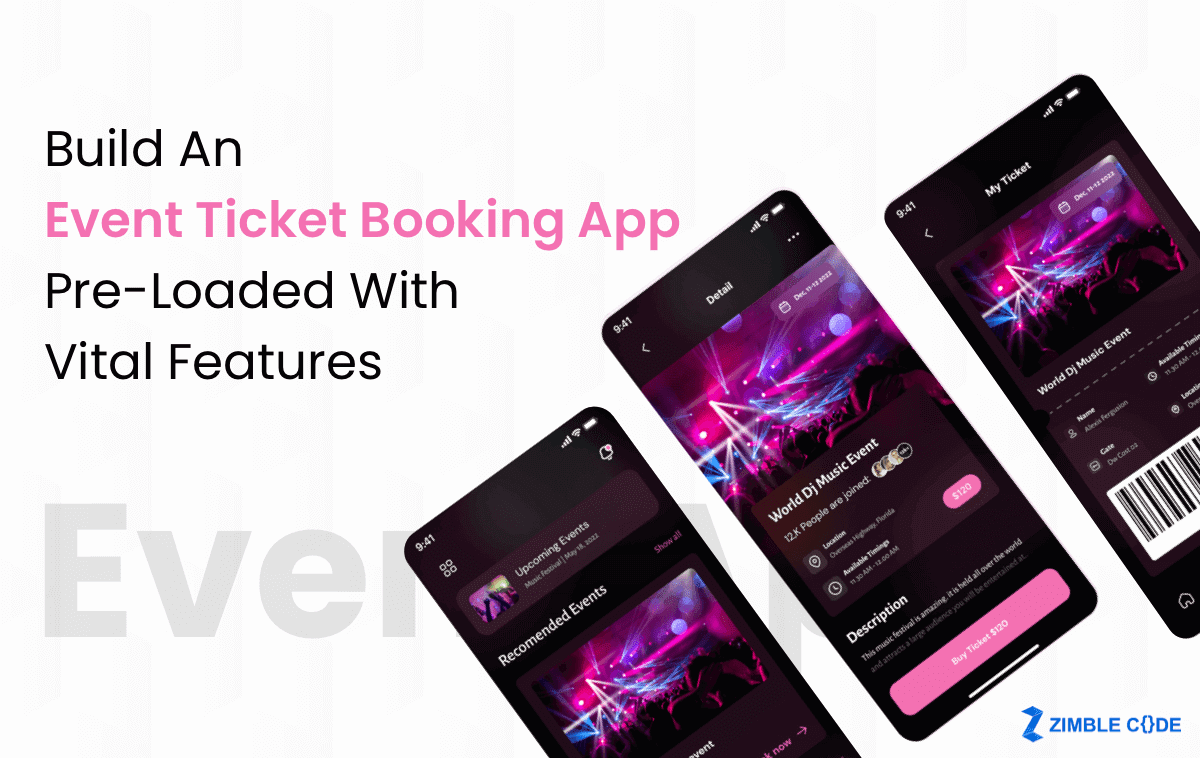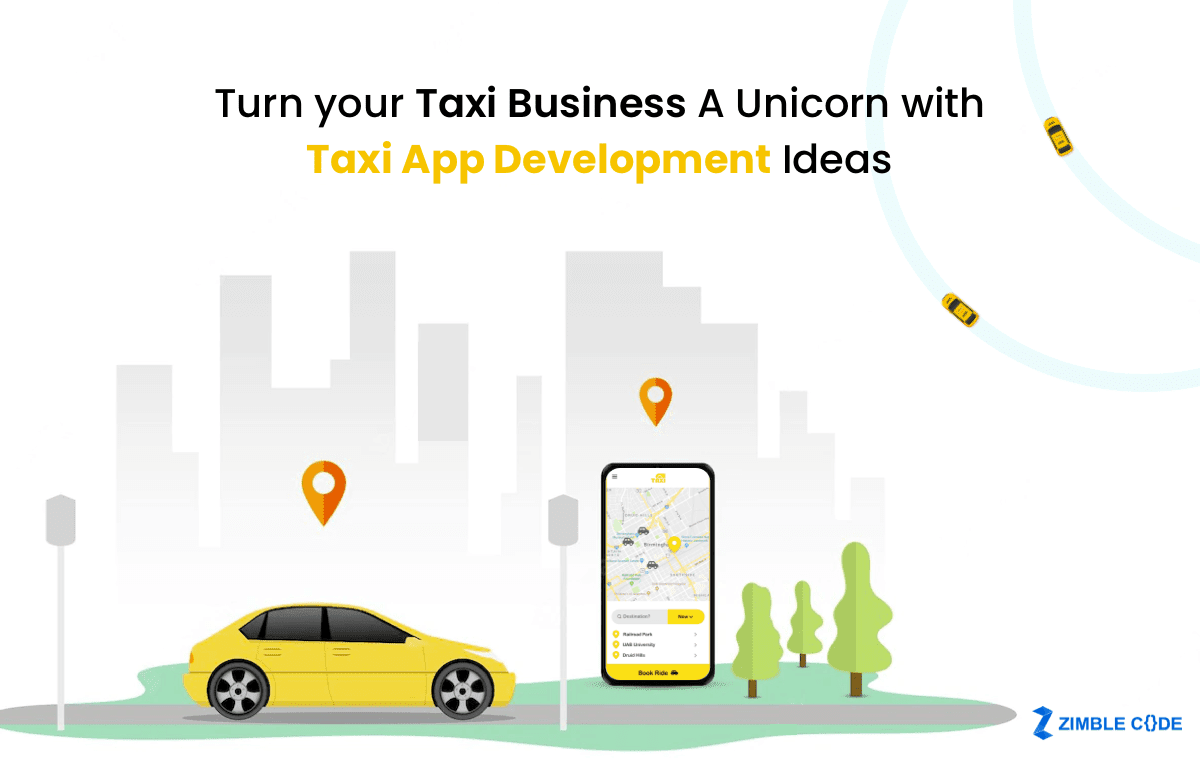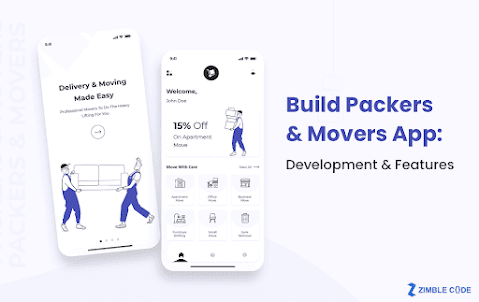Build An Event Ticket Booking App Pre-Loaded With Vital Features
Every day there are many athletic events, exhibits, festivals, conferences, and gatherings throughout the world. They may support diverse causes and include participants from a range of ages and interests. But they all have one thing in common – Revenue Generation via Updated Technology.
Undoubtedly, apps for event planning have been prove to be an effective way to engage a crowd, provide a better experience, and maximize an organizer’s efforts. It goes without saying that the event technology industry is anticipated to expand by 10.65 percent between 2019 and 2025.
Though it could be challenging to get started with all the potential business models, specialty sectors, and even customers, it can be pursued by creating a successful mobile app. Event ticketing app development company in Brighton has created a thorough guide that breaks down all of the key processes and components of the event planning app development process to help you understand it.
Here are some fundamental steps of event ticketing app development that you should bear in mind while kick-starting your own event apps:
1. Define your goal
You must first comprehend what you want to construct and why – just like with any other program. Establish the fundamentals: develop a compelling concept; identify and study your target audience; to ascertain their demands and alike to ensure the right direction of event app development.
Before you start developing your product, familiarize yourself with your main rivals because the market for event management applications is rather crowded.
2. Think about your alternatives for implementation
Which one do you prefer: a mobile app or a website? Or, perhaps both? A website may be a more practical choice if we’re talking about buying tickets. A mobile app would be better when your users are present at the event. The capability of a mobile app to operate offline is still another factor in its favour. Most event details, such as maps, timetables, speaker information, etc., may be kept locally for use offline.
You have the option of using native or cross-platform solutions when it comes to mobile app development from event ticketing app development in Brighton. Both alternatives are feasible, but native apps notably provide a quicker and better user experience.
3. Confirm your specifications
This is the time to select the features of your event management software that will work best. Given the wide range of event planning applications available, the functionality may vary depending on the company model, objective, or use case you decide to target.
However, the following seven prime features of event ticketing app development:
- Ticket sales, which include handling payments and providing electronic tickets.
- Mobile check-in, allows users to access the event using their mobile pass.
- Geolocation will be helpful right away since attendees should be aware of the precise location of the event.
- During large events, interactive venue maps with interior navigation features are crucial, especially in maze-like environments.
- The event schedule includes speaker bios in great detail. Offering some customizing choices, such as the ability to build your own calendar by selecting the events you wish to go to, would be a wonderful idea.
- Networking capabilities, such as social network integration, and the ability to create and share digital business cards, including those that use QR codes.
- Push notifications for location-based communications, reminders, and real-time changes.
4. Create, assemble, and test
You can begin the creation of your product as soon as the concept has been established. Although the procedure itself is rather basic, there are a few things we want to draw your attention to so you may save effort and money over the long term:
- Create a visual prototype: Test your idea with actual users and see it “in flesh.”
- Enumerate your way to the release: Divide the project’s scope into smaller, more manageable components and proceed incrementally. As a result, you may make modifications as you go along without rewriting half the code for your program.
- Test as you construct: The concepts of test-driven development (TDD) are frequently employed to make sure that the software satisfies the predetermined criteria in terms of both its quality and business logic.
5. Launch the app
The primary issue with event planning applications from top mobile app development company in Brighton, UK is that you can’t use them beforehand to understand how they work. There is no way to simulate the moment when customers begin engaging with your product actively.
This implies that having your tech personnel on hand is essential in case something goes wrong at the event. For a service that is as time-sensitive as an event app, strong technical support is a need. Additionally, you should plan how to advertise your event app well in advance of its release. Utilize your event website and provide exclusive benefits to app users at the event. Make your product a crucial complement to the event experience, nothing more.
Wrapping up!
Event planning is no longer challenging. All due to the firms who provide event booking apps and can assist you in starting a business in this developing industry. Start a business, invest in the creation of an event booking software, and allow event managers and users to enjoy a wonderful time planning and attending events. With a skilled team of developers, designers, testers, and marketers, you can take your business to the next level.
Article Resource - https://zimblecode.com/build-an-event-ticket-booking-app-pre-loaded-with-vital-features/




Comments
Post a Comment